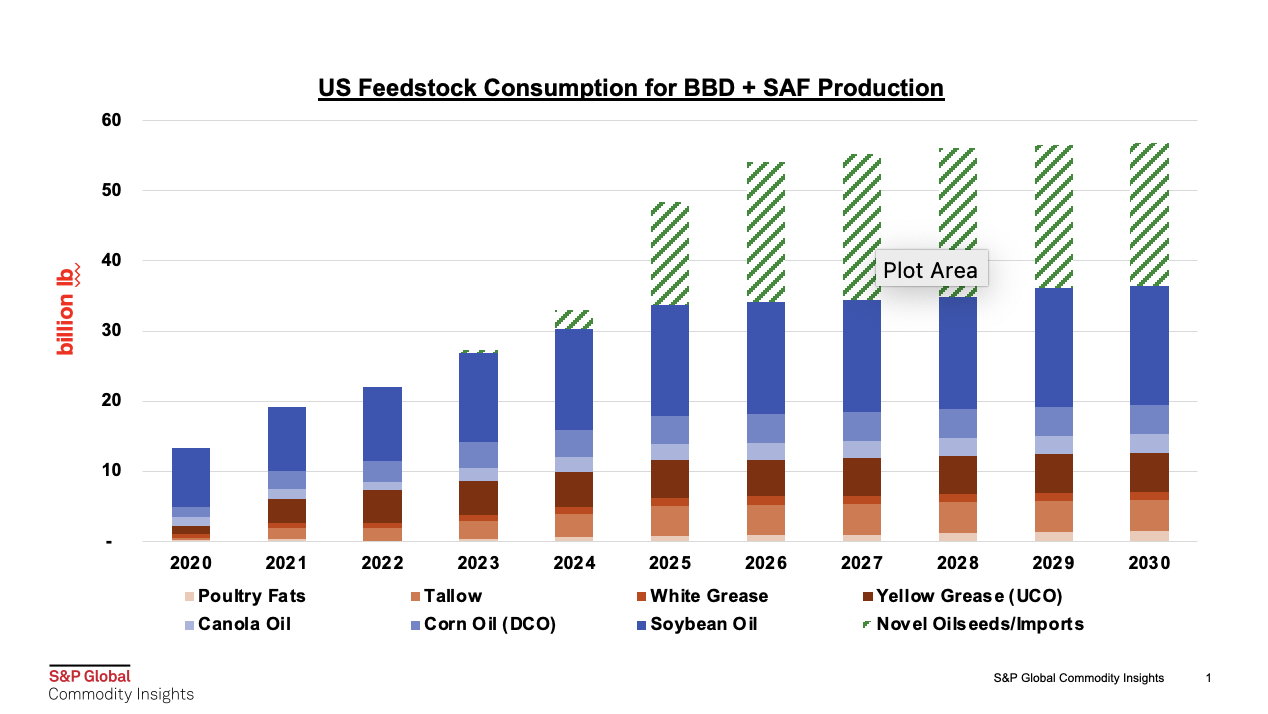This Researcher Looks to Uncover Renewable Diesel Source in Unique Place
Farm Journal Report-University of Nebraska
Step into greenhouses at the University of Nebraska-Lincoln (ULN), and you’ll discover research taking root to answer a growing global need for more oil–from jet fuel, to heavy equipment, as well as food products and industrial needs.
The demand for oil continues to ramp up as biomass based diesel, which includes renewable diesel, is fueled by the focus on finding cleaner burning fuels. Seeing that need is exactly what one UNL researcher made the focus of his latest research.
“Our research is focused on making more oil and better oil,” says Edgar Cahoon, professor of biochemistry and also director of the center for plant science innovation at UNL. “We're trying to address the need for the for more oil, there's a world shortage of vegetable oils, but also tried to make higher value oils for producers.”
Department of Energy Shows Interest in UNL Research
The need is so great, Cahoon’s research just received a $12.8 million grant from the Department of Energy over the next five years.
Cahoon says he’s part of a group of a researching team, led by UNL, who is using biotechnology tools to improve crops, unlocking the full potential of two oilseeds, but then those findings will be applied to crops not known for producing oil.
“We're doing that both in traditional oilseed crops like soybean, but also trying to make more oil and vegetative or biomass crops like sorghum,” he adds.
Uncovering What Genes Produce the Oil
So, exactly what are the researchers trying to uncover? Cahoon says his research is out to find what makes the oilseeds oil-producing machines.
“This idea that we're going to be engineering, vegetable oil production and the leaves of stems, leaves and stems of sorghum is kind of a new idea. And it's really both a scientific challenge and at some point, will be a bio processing challenge,” says Cahoon.
Through biotechnology, Cahoon and the team are working to introduce genes that increase the genetic diversity of the plant, and ultimately, allow the crops to produce higher levels of oil.
“We want to add more value to the these biomass crops like sorghum by engineering pathways to make oils, not in the seeds, but in the the leaves and the stem of the crop to add more value. In the bio processing of sorghum, not only do we get the biomass, but we can get the vegetable oil,” Cahoon explains.
It’s not just traditional oil seed crops such as soybeans being explored here in this greenhouse, but also crops that don’t traditionally aren’t crushed for oil.
“We're working with the biomass crops, they don't traditionally make vegetable oils, so they they're used for things like biofuels,” Cahoon says.
The Push for More Oil to Fuel Demand
The research is being driven by a growing hunger worldwide for more oils, and one that doesn’t seem to be on pace to slow down anytime soon.

The growing need for oil that can be turned into renewable diesel and sustainable aviation fuel is an industry trend that started making waves just over a year ago. For more than a year, S&P Global Commodity Insights has been digging into the need for more oil. Their current forecast shows how that demand is expected to continue to grow, and considering a large portion of these products are already used for food and industrial purposes, analysts say more supply will be needed to meet that demand.
Some of that supply could come from new feedstock supplies like camelina, another crop UNL is currently researching.
“We also work on non-food oil crops,” says Cahoon. “One of them is camelina, we think that's an alternative especially for maybe more marginal dry land applications. And as a cover crop for rotations with crops like soybean.”
Cahoon says vegetable oils are the most energy dense molecules produced on the planet, which is why they are an attractive option for the quest to find more oil to supply renewable fuels and bioproducts.
“They have the functionality that you need for the food applications, but they also have a lot of energy stored within the molecules that can be broken apart and used for diesel applications for jet fuel applications,” he adds.
UNL's Focus on Biotechnology
Cahoon says the research is taking root at UNL for one major reason: the University’s continued investment and focus on biotechnology, which is a vital tool in meeting the exploding demand.
“We're really fortunate at the University of Nebraska-Lincoln because we have some of the best facilities in the public sector for crop biotechnology,” he says.
The living laboratory is rooted in understanding farmers’ needs to create value-added opportunities, even beyond traditional uses of food and biofuels. Cahoon says the research at UNL facilities today are aimed at not only understanding the enzymes that could allow different crops to generate oil, to producing soybean plants that even feature fish oils, it’s all about meeting a growing demand.







